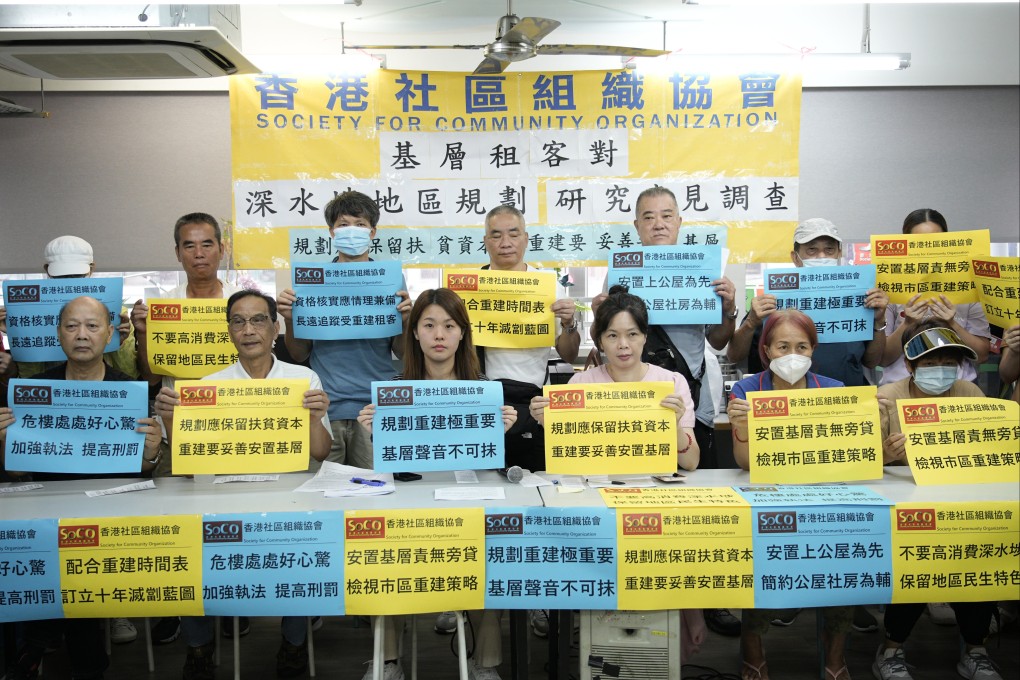75% of Hongkongers in second-poorest district call for better hygiene measures, greater structural safety at buildings, survey finds
- NGO poll also finds less than 7 per cent of residents in Sham Shui Po satisfied with government inspection efforts following spate of incidents involving falling concrete
- ‘A lot of residents complained that the old buildings where they live in have a lot of issues … such as water leakages or structural issues’, NGO deputy director says

More than three out of four residents in Hong Kong’s second-poorest district have called for improvements to hygiene and structural safety among buildings in the area, a survey has found.
The Society for Community Organisation (SoCO) said the poll results published on Sunday also showed that less than 7 per cent of residents in Sham Shui Po were satisfied with government inspection efforts after the city witnessed multiple incidents of debris falling from ageing buildings in recent months.
“A lot of residents complained that the old buildings where they live have a lot of issues, where landlords only know how to collect rent, with issues such as water leakages or structural issues not being handled by them,” said Sze Lai-shan, the organisation’s deputy director.
The NGO interviewed 303 people living in the district, aged 18 to 82, and found that 89.8 per cent of them lived in some form of subdivided housing, such as cage homes and cubicle flats.
Government figures showed Sham Shui Po was Hong Kong’s second-poorest district after Kwun Tong, with the median household monthly income in 2022 for the former standing at HK$22,280 (US$2,848).